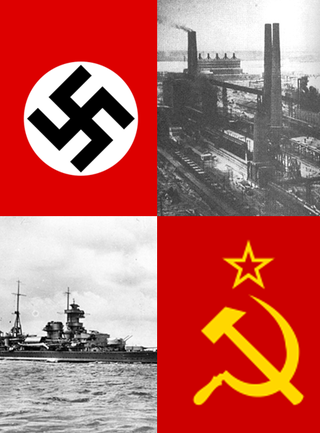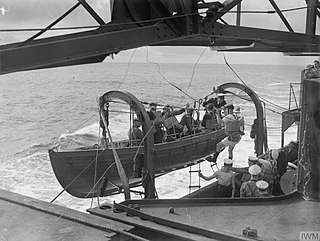Related Research Articles

The economy of Senegal is driven by mining, construction, tourism, fishing and agriculture, which are the main sources of employment in rural areas, despite abundant natural resources in iron, zircon, gas, gold, phosphates, and numerous oil discoveries recently. Senegal's economy gains most of its foreign exchange from fish, phosphates, groundnuts, tourism, and services. As one of the dominant parts of the economy, the agricultural sector of Senegal is highly vulnerable to environmental conditions, such as variations in rainfall and climate change, and changes in world commodity prices.

An export in international trade is a good produced in one country that is sold into another country or a service provided in one country for a national or resident of another country. The seller of such goods or the service provider is an exporter; the foreign buyers is an importer. Services that figure in international trade include financial, accounting and other professional services, tourism, education as well as intellectual property rights.

In economics, a country's current account records the value of exports and imports of both goods and services and international transfers of capital. It is one of the two components of its balance of payments, the other being the capital account. Current account measures the nation's earnings and spendings abroad and it consists of the balance of trade, net primary income or factor income and net unilateral transfers, that have taken place over a given period of time. The current account balance is one of two major measures of a country's foreign trade. A current account surplus indicates that the value of a country's net foreign assets grew over the period in question, and a current account deficit indicates that it shrank. Both government and private payments are included in the calculation. It is called the current account because goods and services are generally consumed in the current period.
Foreign trade played an important role in the national economy of Communist Czechoslovakia as opposed to the economic system of the Soviet Union.

Non-tariff barriers to trade are trade barriers that restrict imports or exports of goods or services through mechanisms other than the simple imposition of tariffs.

The Reichsmark was the currency of Germany from 1924 until 20 June 1948 in West Germany, where it was replaced by the Deutsche Mark, and until 23 June 1948 in East Germany, where it was replaced by the East German mark. The Reichsmark was subdivided into 100 Reichspfennigs. The Mark is an ancient Germanic weight measure, traditionally a half pound, later used for several coins; whereas Reich, comes from the official name for the German state from 1871 to 1945, Deutsches Reich.
Foreign exchange reserves are cash and other reserve assets such as gold held by a central bank or other monetary authority that are primarily available to balance payments of the country, influence the foreign exchange rate of its currency, and to maintain confidence in financial markets. Reserves are held in one or more reserve currencies, nowadays mostly the United States dollar and to a lesser extent the euro.

The Deutsche Reichsbahn, also known as the German National Railway, the German State Railway, German Reich Railway, and the German Imperial Railway, was the German national railway system created after the end of World War I from the regional railways of the individual states of the German Empire. The Deutsche Reichsbahn has been described as "the largest enterprise in the capitalist world in the years between 1920 and 1932"; nevertheless its importance "arises primarily from the fact that the Reichsbahn was at the center of events in a period of great turmoil in German history".
The economy of the Socialist Federal Republic of Yugoslavia (SFRY) was a unique system of socialist self-management that operated from the end of World War II until the country's dissolution in the 1990s. The Yugoslav economy was characterized by a combination of market mechanisms and state planning, with a focus on worker self-management and a decentralized approach to decision-making. Despite facing numerous challenges, including political instability and external pressures, the Yugoslav economy achieved significant growth and modernization during its existence, with a particularly strong emphasis on education, health care, and social welfare. However, the system ultimately proved unsustainable in the face of the global economic changes of the 1980s and the political tensions that led to the breakup of Yugoslavia in the 1990s. Despite common origins, the yugoslav economy was significantly different from the economies of the Soviet Union and other Eastern European socialist states, especially after the Yugoslav-Soviet break-up in 1948. The occupation and liberation struggle in World War II left Yugoslavia's infrastructure devastated. Even the most developed parts of the country were largely rural, and the little industry of the country was largely damaged or destroyed.
An export credit agency or investment insurance agency is a private or quasi-governmental institution that acts as an intermediary between national governments and exporters to issue export insurance solutions and guarantees for financing. The financing can take the form of credits or credit insurance and guarantees or both, depending on the mandate the ECA has been given by its government. ECAs can also offer credit or cover on their own account. This does not differ from normal banking activities. Some agencies are government-sponsored, others private, and others a combination of the two.

Export subsidy is a government policy to encourage export of goods and discourage sale of goods on the domestic market through direct payments, low-cost loans, tax relief for exporters, or government-financed international advertising. An export subsidy reduces the price paid by foreign importers, which means domestic consumers pay more than foreign consumers. The World Trade Organization (WTO) prohibits most subsidies directly linked to the volume of exports, except for LDCs. Incentives are given by the government of a country to exporters to encourage export of goods.
Unequal exchange is used primarily in Marxist economics, but also in ecological economics, to denote forms of exploitation hidden in or underwriting trade. Unequal exchange is usually calculated by assuming that any trade between a country with a high price level and a country with a low price level, is exploitation. Originating, in the wake of the debate on the Singer–Prebisch thesis, as an explanation of the falling terms of trade for underdeveloped countries, the concept was coined in 1962 by the Greco-French economist Arghiri Emmanuel to denote an exchange taking place where the rate of profit has been internationally equalised, but wage-levels have not. It has since acquired a variety of meanings, often linked to other or older traditions which perhaps then raise claims to priority.
In international economics, international factor movements are movements of labor, capital, and other factors of production between countries. International factor movements occur in three ways: immigration/emigration, capital transfers through international borrowing and lending, and foreign direct investment. International factor movements also raise political and social issues not present in trade in goods and services. Nations frequently restrict immigration, capital flows, and foreign direct investment.
Trade is a key factor of the economy of China. In the three decades following the dump of the Communist Chinese state in 1949, China's trade institutions at first developed into a partially modern but somewhat inefficient system. The drive to modernize the economy that began in 1978 required a sharp acceleration in commodity flows and greatly improved efficiency in economic transactions. In the ensuing years economic reforms were adopted by the government to develop a socialist market economy. This type of economy combined central planning with market mechanisms. The changes resulted in the decentralization and expansion of domestic and foreign trade institutions, as well as a greatly enlarged role for free market in the distribution of goods, and a prominent role for foreign trade and investment in economic development.

The 1940 German–Soviet Commercial Agreement was an economic arrangement between the Soviet Union and Nazi Germany signed on 11 February 1940. In it the Soviet Union agreed in the period from 11 February 1940–1941, in addition to the deliveries under German–Soviet Commercial Agreement, signed on 19 August 1939 to deliver commodities to the value of 420 to 430 million Reichsmarks.

After the Nazis rose to power in Germany in 1933, relations between Nazi Germany and the Soviet Union began to deteriorate rapidly. Trade between the two sides decreased. Following several years of high tension and rivalry, the two governments began to improve relations in 1939. In August of that year, the countries expanded their economic relationship by entering into a Trade and Credit agreement whereby the Soviet Union sent critical raw materials to Germany in exchange for weapons, military technology and civilian machinery. That deal accompanied the Molotov–Ribbentrop Pact, which contained secret protocols dividing central Europe between them, after which both Nazi forces and Soviet forces invaded territories listed within their "spheres of influence".

The Blockade of Germany (1939–1945), also known as the Economic War, involved operations carried out during World War II by the British Empire and by France in order to restrict the supplies of minerals, fuel, metals, food and textiles needed by Nazi Germany – and later by Fascist Italy – in order to sustain their war efforts. The economic war consisted mainly of a naval blockade, which formed part of the wider Battle of the Atlantic, but also included the bombing of economically important targets and the preclusive buying of war materials from neutral countries in order to prevent their sale to the Axis powers.
The Great Famine was a period of mass starvation during the Axis occupation of Greece (1941–1944), during World War II. The local population suffered greatly during this period, while the Axis Powers initiated a policy of large-scale plunder. Requisitions, together with the Allied blockade, the ruined state of the country's infrastructure after the German invasion of Greece, and the emergence of a powerful and well-connected black market, resulted in the Great Famine, with the mortality rate reaching a peak during the winter of 1941–42.
Kontinentale Öl AG was a German oil company during World War II.
Treuhandverwaltung für das Deutsch-Niederländische Finanzabkommen GmbH (Tredefina) was a public law institution originally formed in 1920 by the Weimar Republic which during the Nazi occupation of Europe was used by CEO Alexander Kreuter to purchase Aryanized companies. Originally created to administer a revolving loan from the Netherlands of 140 million Dutch guilders, Tredefina remained active until the early 21st century.
References
- ↑ p. 366
- ↑ Klara van Eyll, Ulrike Duda, Gesellschaft für Unternehmensgeschichte: Deutsche Wirtschaftsarchive: Bestände von Unternehmen, p. 220, 1991
- ↑ Heinz A. Richter, Komnēnos Pyromaglou: Griechenland zwischen Revolution und Konterrevolution (1936-1946), p. 198
- ↑ Susanne Heim: Geschichte der Kaiser-Wilhelm-Gesellschaft im Nationalsozialismus,p. 219
- ↑ Stellungnahme der Deutschen Bundesregierung vom 11. Februar 2010 (PDF; 113 kB)
- ↑ Ulrike Duda: Bestände von Unternehmen, Unternehmern, Kammern und Verbänden, p. 220 1992.
- 1 2 Martin Seckendorf: Zur Wirtschaftspolitik der deutschen Besatzer in Griechenland 1941-1944. Ausbeutung, die in die Katastrophe mündete. Archived 2014-11-02 at the Wayback Machine Edited version of a presentation held on 3 December 2005 at a symposium of the Athens University of Economics and Business over the reparations of Greek victims of the German occupation; hosted by the Berliner Gesellschaft für Faschismus- und Weltkriegsforschung e.V. Archived 2017-06-25 at the Wayback Machine
- ↑ Holm Sundhaussen: Wirtschaftsgeschichte Kroatiens im nationalsozialistischen Großraum, p. 221.
- ↑ Wolfgang Schumann: Griff nach Südeuropa, p. 61. 1973.
- ↑ Weltwirtschaftliches Archiv, Vol. 58, Issue 1, p. 42. Universität Kiel. Institut für Weltwirtschaft – 1943
- ↑ Rainer Eckert: Vom «Fall Marita» zur «wirtschaftlichen Sonderaktion» Die deutsche Besatzungspolitik in Griechenland vom 6. April 1941 bis zur Kriegswende im Februar/März 1943 p. 133, 1992.